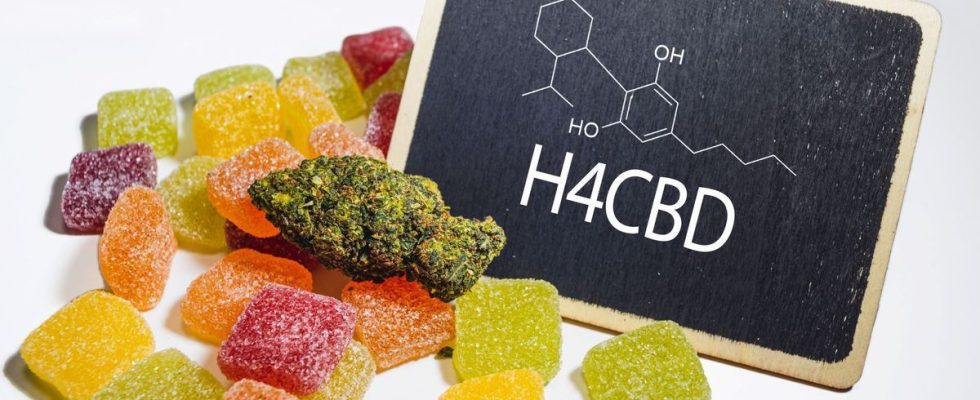Published on
Updated
Reading 3 mins.
in collaboration with
Dr. Joachim Müllner (Psychiatrist)
The ANSM has just announced the ban on HHC, a hydrogenated derivative of cannabis, but it seems that another substance has already taken its place: H4CBD. What is this stuff? What are the advantages ? Its risks? The answers of Dr. Joachim Müllner, psychiatrist and member of the committee of experts of Doctissimo.
Doctissimo: What is H4CBD and its effects?
Dr Joachim Müllner : H4CBD is a synthetic cannabinoid derived from CBD. It is obtained in the laboratory by the hydrogenation of CBD molecules present in cannabis flowers whose THC (tetrahydrocannabidiol) content is very low (less than 0.3%) and whose rate of CBD (cannabidiol) molecules is important.
Why did it replace HHC, now banned?
Dr Joachim Müllner : Talking about HA4CBD as a product that “replaces” HHC is only a marketing slogan for CBD sellers to sell as much H4CBD as possible while waiting for the legislation to adapt. Indeed, unlike H4CBD, HHC is a derivative, not of CBD, but of cannabis containing significant concentrations of THC, from the hydrogenation of THC molecules and not of CBD. Unlike CBD, and therefore most probably H4CBD, HHC has effects close to classic cannabis whose THC level is high (“dysleptic” effects, i.e. altering normal brain function).
Does the H4CBD molecule have an affinity 100 times greater than that of CBD?
Dr Joachim Müllner : When you type H4CBD in the internet search engine, you come across an impressive number of sales sites for these products which highlight a “power” 100 times greater than CBD. This is obviously totally false and again only a marketing slogan to deceive the consumer and sell as much as possible. The international scientific community totally lacks data to say anything at the moment. All these sites only repeat a single study dating from 20061 and which, to my knowledge, has not been replicated since. It showed that H4CBD has a hundred times greater affinity for CB1 receptors than CBD molecules, which obviously does not mean that the effect itself is 100 times greater than that of CBD. Additional studies on the effects of H4CBD and on the biochemistry of this molecule are necessary to decide.
What are the benefits of H4CBD? Its disadvantages? Is the risk of addiction important?
Dr Joachim Müllner : The scientific community lacks hindsight on this molecule for the moment but it would seem that H4CBD has an effect close to that of CBD (“relaxation”, “appeasement”, “feeling of well-being”) with, however, according to some sources, also a psychoactive effect which would suggest that this substance could also soon be classified in the category of “dyspleptic” psychotropics and therefore, in turn, be prohibited.
Its disadvantages are therefore a psychoactive effect, the content and intensity of which remains to be specified, and the fact that its mode of consumption is by inhaling smoke after combustion of cannabis flower, which is obviously highly carcinogenic and causes pathologies in particular pulmonary.
The risk of dependence is currently unknown and remains to be clarified. However, it should be remembered that CBD, unlike THC, does not cause addiction.
Do you think H4CBD will soon be banned too?
Dr Joachim Müllner : It will depend on the presence or not of a “dysleptic” psychoactive effect, ie altering the normal cerebral functioning. If this psychotropic were to cause, like THC, for example disorders of attention, memory, executive functions or even the processing of sensory information by the brain, it will undoubtedly be prohibited.
